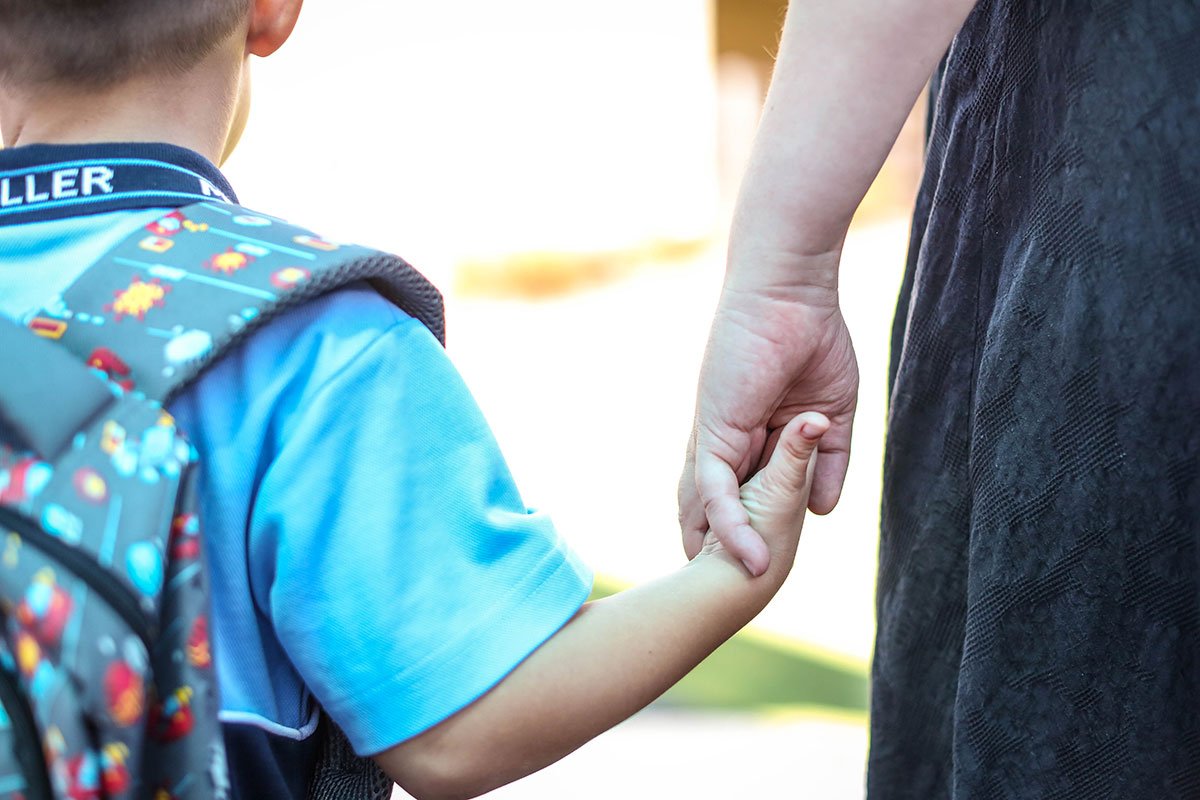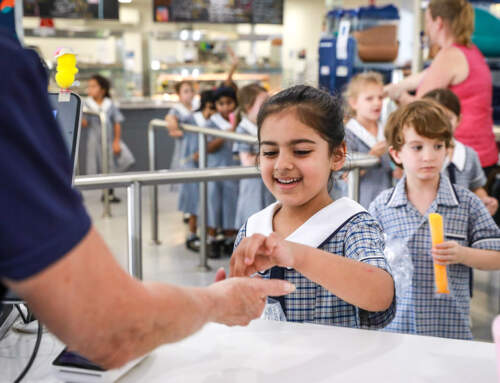Separation anxiety can be a normal experience for young children returning to or starting school and does not necessarily mean that they have a mental health condition or that it’s the result of bad parenting. Separation anxiety is a fear of being away from parents or carers and is often expressed by crying at the point of separation or the lead-up to separation. Children may try to cling or even run after their parents, which can be an emotionally difficult situation for parents.
The experience of separation anxiety usually reduces over time as the child develops trust with their new teacher and learns that the school environment is a safe place to be. Often the child’s distress, when separated at drop off only lasts about 10 to 20 minutes, which can sometimes be difficult to believe, especially when the last scene parents see is their child’s screaming little face.
Separation anxiety can be exacerbated by a recent loss the child has experienced, such as the death of a beloved pet or having recently moved houses. At times of loss, some children will need an extra dose of comfort and reassurance from their parents and teachers to help them process these challenging experiences and manage their anxieties. In the subconscious mind of the child that has experienced loss, they need to hang on to what they have left in case they lose that too, sometimes resulting in some level of separation anxiety.
One aspect of separation anxiety that is often overlooked is that parents can have separation anxiety as well. Parents must be aware of their own thought patterns and emotional reactions both leading up to and during school drop-off. It’s important for parents to regulate their own emotions during these times to model to their children that they will be safe whilst at school. Children are very quick to pick up on their parents’ emotional states and will often act accordingly, either in helpful or unhelpful ways. A helpful tip is to show a happy and relaxed face at the point of separation, even if you feel the opposite. This will help your child to think that if mummy or daddy looks relaxed, then maybe I should be too.
Many parents can struggle emotionally throughout the day if their child has to be left at school upset. Having a plan of what you can do to help calm yourself once you leave your child can be an important part of getting through these difficult times. Organising your day with a to-do list will help reduce the possibility of dwelling on “little Johnny’s” emotional distress. Speaking with and gaining the support of other parents and family members can also provide needed comfort and reassurance. It is very important for parents to avoid putting their children down by saying things like “Don’t be such a baby” or punishing them for crying at the point of separation, this is likely only going to exacerbate the issue.
It is possible for a parent to impede upon the healthy development of their child if they consistently and purposefully avoid situations where separation is necessary. If you or your child is struggling with separation it is always better to reach out for support sooner rather than later.
If you are concerned about your child and would like to refer them to a school counsellor, please contact front reception 07 3897 2990 or email admin@mueller.qld.edu.au.






